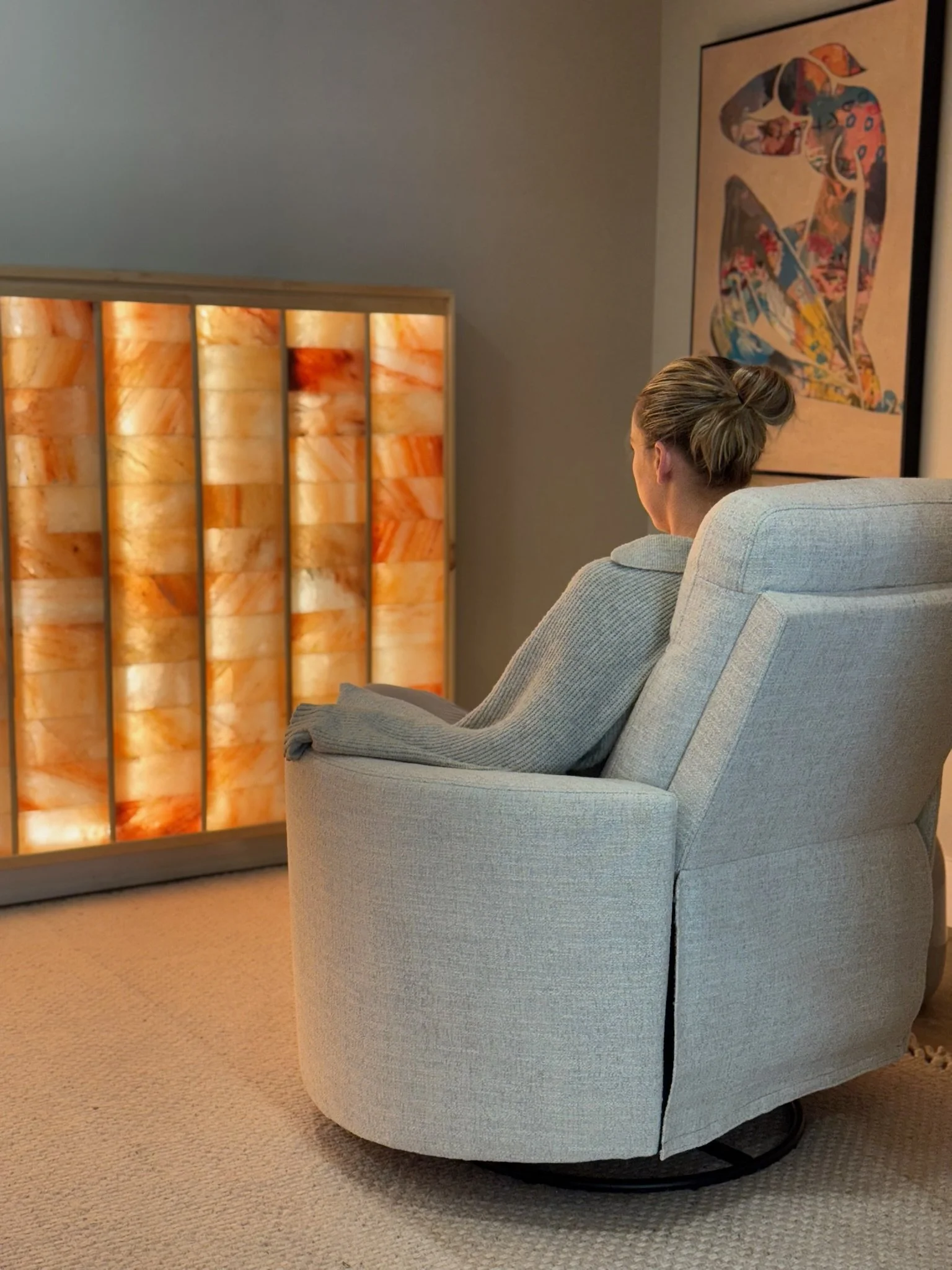Halotherapy (Salt)
Best results if used 2-3x a week
Experience Deep Respiratory Renewal
In today’s fast-paced world, your body and mind are constantly exposed to stress, pollutants, and overstimulation. Halotherapy—also known as dry salt therapy—offers a natural, science-backed way to cleanse the respiratory system, calm inflammation, and help you breathe (and feel) better. At RenuLounge, we elevate this ancient remedy into a modern wellness experience designed to help you reset, one breath at a time.
Benefits of Halotherapy
Halotherapy helps cleanse the respiratory system, reduce inflammation, and promote overall wellness
Clears Lung Congestion & Mucus
Clinical studies show halotherapy can improve bronchial drainage by up to 40%
Calms Skin Conditions like Eczema & Psoriasis
A clinical trial showed a 57% reduction in eczema severity after halotherapy treatments.
Boosts Immune Resilience
Regular halotherapy sessions have been linked to reduced frequency of colds and respiratory infections.
Relieves Sinus Pressure & Allergies
Participants with allergic rhinitis reported symptom relief in as little as 3 sessions.
Reduces Inflammation in Airways
Patients with asthma reported a 72% improvement in symptoms after consistent halotherapy
Promotes Deep Relaxation & Stress Relief
Clients report a 60% decrease in stress levels post-session
FAQs
-
Halotherapy, or dry salt therapy, is a natural treatment that disperses microscopic salt particles into the air to cleanse the respiratory system, reduce inflammation, and support overall wellness. Just by breathing in the salt-infused air, you can experience clearer lungs, calmer skin, and deep relaxation.
-
Halotherapy works by dispersing pharmaceutical-grade salt particles into the air using a halogenerator. As you breathe in the dry salt aerosol, it travels deep into your respiratory system—loosening mucus, reducing inflammation, and clearing toxins—while also settling on the skin to support healing and balance.
-
You’ll relax in a quiet, spa-like room while breathing in salt-infused air—similar to sitting in a peaceful, dry beach cave. Most people find it deeply calming.
-
Halotherapy is generally safe and well-tolerated, but mild, temporary side effects can occur, especially during initial sessions. These may include:
Slight coughing or throat tickling (as mucus loosens)
Temporary runny nose or sinus drainage
Mild skin dryness or irritation in sensitive individuals
Rarely, a brief increase in coughing for those with asthma (often followed by symptom relief)
Always consult your healthcare provider if you have a severe respiratory condition or are unsure if halotherapy is right for you.
-
Comfortable clothing is best. If you're targeting skin concerns, expose affected areas (e.g., wear short sleeves or shorts).
-
As far as session length, our treatments are 40 min. You have the room for 45 min.
-
For general wellness and immune support, 1–2 sessions per week is a great routine.
If you're managing respiratory issues, allergies, or skin conditions, you may benefit from 2–3 sessions per week or a short-term intensive series (e.g., 8–12 sessions over 4 weeks).
Consistency is key—just like exercise, regular sessions provide the most lasting results.
-
Yes, halotherapy is generally considered safe for pregnant women and can offer natural relief from common pregnancy symptoms like nasal congestion, sinus pressure, and stress.
However, as with any wellness treatment during pregnancy, it’s best to consult your healthcare provider before starting sessions to ensure it aligns with your specific needs.
-
Yes! Halotherapy is safe for children and often used to support relief from asthma, allergies, and colds.
As always, consult your pediatrician.
At Renu Lounge, we require a parent to do the treatment with their child.
“When fine salt particles are inhaled, they will fall on the airway linings and draw water into the airway, thinning the mucus and making it easier to raise, thus making people feel better.”
— Dr. Norman Edelman, Senior Scientific Advisor, American Lung Association


